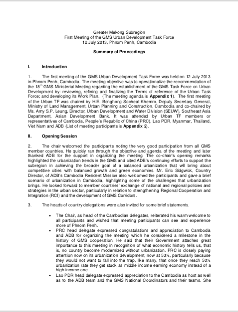
5th Meeting of the GMS Urban Development Task Force
This is the summary of proceedings of the 5th Meeting of the GMS Urban Development Task Force held in Bangkok, Thailand from 25–26 August 2016.
The Greater Mekong Subregion is working to improve the quality of life and economic vibrancy of its cities and towns by using global best practices in urban development.
The Urban Development Working Group oversees urban development and economic zones as new areas of cooperation in the subregion.
By 2050, the Greater Mekong Subregion is expected to be at least 50% urbanized. This will bring vast changes to the economies of the subregion. What was once a primarily agricultural area is transforming into a place where cities and towns are the main drivers of economic growth. Careful planning is needed to balance urban growth with environmental protection and economic equity so that healthy cities can be enjoyed by all residents.
The Greater Mekong Subregion is working to improve the quality of life and economic vibrancy of its cities through the development of national strategies and projects that incorporate global best practices into the subregion’s urban development. This work has included the first and second Corridor Towns Development Project, which is developing competitive and environmentally friendly cities along vital economic arteries in the subregion. Cross-border economic zones are also being developed.
The COVID-19 pandemic inevitably will leave its mark on cities, physically and socially, echoing for generations to come. This is already evident in terms of urban life. The GMS Program will focus on these effects with measures to respond to current and future crises. The GMS Economic Cooperation Program Strategic Framework 2030 (GMS-2030) will encourage a holistic approach to the future planning of cities so that they are green, smart, competitive, resilient, safe, and inclusive. It will also promote linkages between cities to develop new urban clusters and maximize economies of agglomeration, develop cities in border areas, create linkages with special economic and industrial zones, and improve waste management and pollution in cities located close to GMS rivers and seas. GMS-2030 was endorsed and adopted at the 7th GMS Summit of Leaders in September 2021. It aims to provide a new setting for the development of this subregion for the next decade.
Related
• Urban Development in the Greater Mekong Subregion
• Greater Mekong Subregion Urban Development Strategic Framework
• Second Greater Mekong Subregion Corridor Towns Development Project
• Urban Development Working Group
Focal Persons at the Asian Development Bank
Alan Baird
Water and Urban Development Sector Office Sectors Group
Hinako Maruyama
Water and Urban Development Sector Office Sectors Group
Other Concerned Staff & Consultants
Antonio Ressano
Regional Cooperation and Integration Unit
Southeast Asia Department
Alma Canarejo
Regional Cooperation and Integration Unit
Southeast Asia Department/GMS Secretariat
Send inquiries to GMS Secretariat.

This is the summary of proceedings of the 5th Meeting of the GMS Urban Development Task Force held in Bangkok, Thailand from 25–26 August 2016.
MANILA, PHILIPPINES (8 December 2016) – The Asian Development Bank has approved a $450 million investment program to promote cross-border economic activities between Guangxi Zhuang Autonomous Region of the People’s Republic of China and northern Viet Nam. The program will focus on developing the North-South Economic Corridor under the Greater Mekong Subregion Cooperation Program.
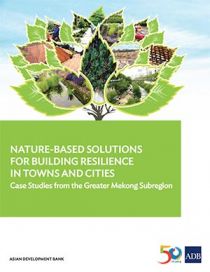
Green infrastructure can play a significant role in offsetting losses from climate-related disasters and contribute to building resilience through rehabilitation and expansion of natural ecosystems within built areas.
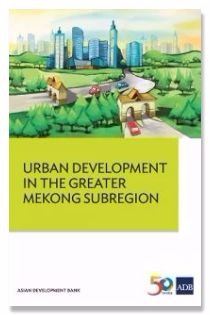
Urbanization is set to play an ever greater role in the development of the Greater Mekong Subregion (GMS) countries, transforming their economies and providing support to green economic growth.
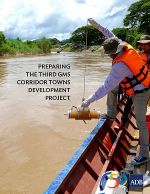
This brochure looks at plans for the Third Greater Mekong Subregion (GMS) Corridor Towns Development Project, to improve urban services in three towns in southern Myanmar.
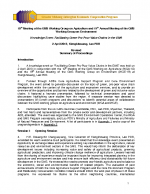
The Fourth Meeting of the GMS Urban Development Task Force was held in Nay Pyi Taw on 18–19 August 2015.
HA NOI, VIET NAM (3 December 2015) – The Asian Development Bank has approved a $100 million loan to support government efforts to boost urban and water services in Bac Giang, Mong Cai and Sa Pa, three towns located along the North-South Economic Corridor within the Greater Mekong Subregion.
VIENTIANE, LAO PEOPLE’S DEMOCRATIC REPUBLIC (16 November 2015) – The Asian Development Bank has approved a $37 million loan, with an additional $10 million in cofinancing, to support government efforts to improve urban services in Houayxay and Luang Namtha, two towns located along a Greater Mekong Subregion main economic corridor.
Modern water supply, wastewater treatment, and garbage collection services are paving the way for the transformation of the city of Mandalay in upper Myanmar into a prosperous, green urban center.
BANGKOK, THAILAND (15 October 2017) – The Asian Development Bank and the Neighbouring Countries Economic Development Cooperation Agency, a Thai development agency, have signed a partnership arrangement to carry out joint cooperation programs at national and regional levels.